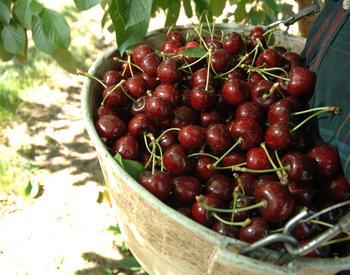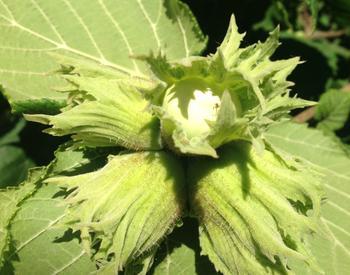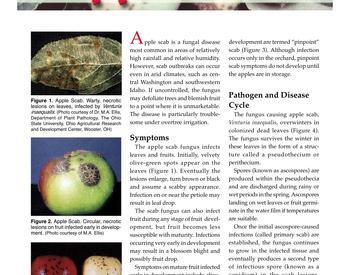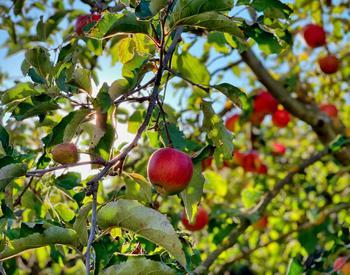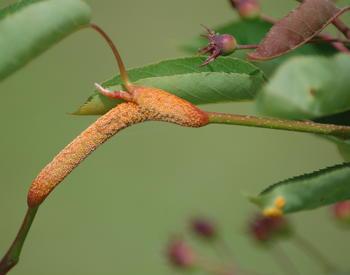If you haven't grown your own tree fruit you might accept that peaches must be hard and pithy, apples soft and bland, and plums rubbery and dry. I have grown tree fruit in my yard in many areas of the country, and in each case the homegrown fruit was tastier than the store-bought. Growing your own fruit also means you can raise unusual varieties that you might never find in the store.
There are a number of other reasons to have fruit trees. Many fruit trees have a lovely floral display each spring and grow into nice small- to medium-sized trees that work well in an urban landscape. Many fruit trees come with dwarfing rootstocks and can fit in very small yards and garden spaces. Dwarf trees, with training, work well for ornamental purposes such as espalier along a wall or as living fences or hedges to divide your yard.
Is having a home orchard for everyone? Probably not. If you are the type of gardener who likes to plant and harvest but not do much in between, raising fruit trees is not for you. If you are a gardener who dislikes spraying, even nontoxic sprays, then raising fruit trees is not for you. If you have very little free time during the spring and summer, then raising fruit trees is not for you. If you would rather be on the golf course or tennis court than in your garden, then raising fruit trees is not for you.
For those of you who may decide not to raise your own fruit, search out your local tree-fruit producers to get tasty produce. Many of them have u-pick operations that allow their crop to mature on the tree. Supermarket produce is often harvested early and made up of varieties that hold up well in shipping and storage — unfortunately at the sacrifice of taste and texture.
For the gardener who loves to select and plant a tree, train it into a productive shape, fertilize, prune, thin fruit, protect the tree and crop from pests, and have pride in their accomplishments, a home orchard is for you.
The home orchard industry has made giant strides in the past ten years to make growing tree fruit easier. Plant breeders have developed new varieties that resist plant diseases reducing the need for as many protective sprays. Pest control scientists have also perfected new methods that homeowners can copy to control pests with fewer chemicals.
Homeowners also have orchard equipment available that is on a par with commercial growers' equipment. A better understanding of how to control fruit tree size is also helping to reduce the workload for the home orchardist. The only thing the horticulture industry cannot help you with is how you will use all the fruit you produce! Check out our home food safety and preservation tips for ways to preserve your fruit for later enjoyment.


